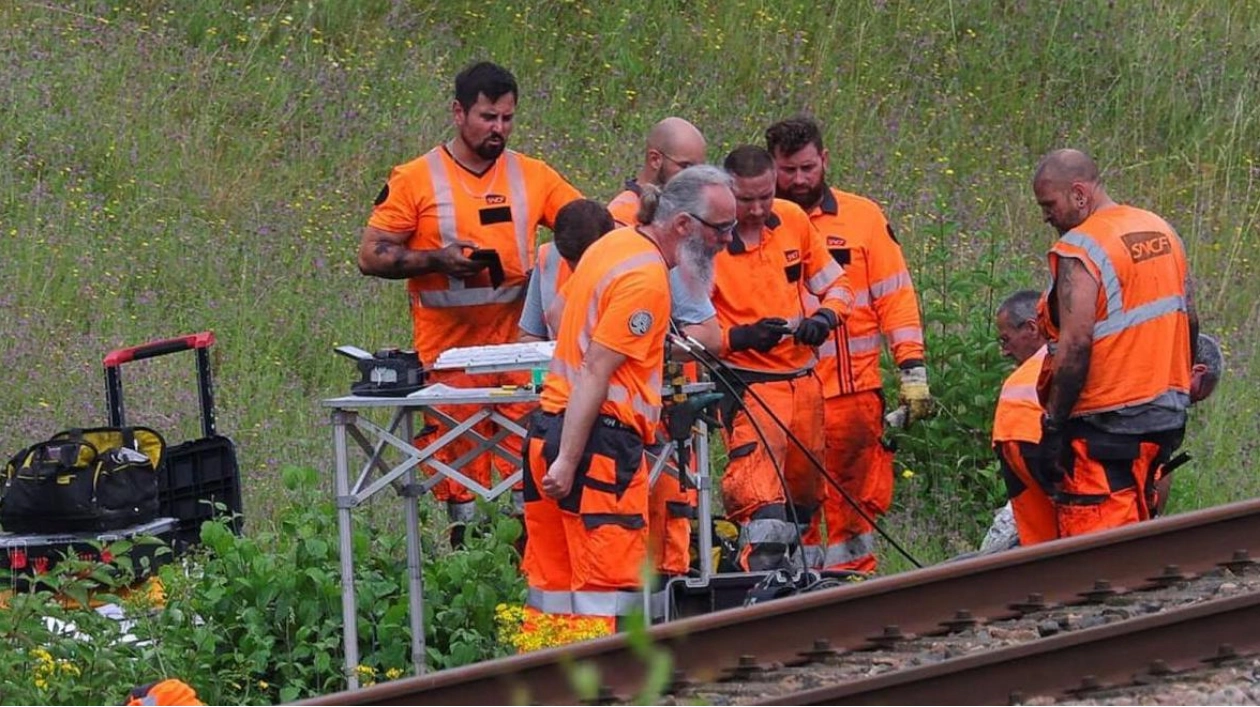Tens of thousands of rail passengers faced difficulties for a second consecutive day on Saturday due to a series of train cancellations, as investigators sought to identify the saboteurs responsible for disrupting the network just before the opening ceremony of the Paris Olympics. Jean-Pierre Farandou, the head of the SNCF rail company, assured that services would return to normal by Monday. However, deputy transport minister authorities confirmed that 160,000 out of the 800,000 scheduled to travel this weekend would still experience cancellations. Nearly one-third of trains in northern, western, and eastern France were cancelled, along with about a quarter of Eurostar high-speed trains between London and Paris.
No group has claimed responsibility for the well-coordinated night-time attacks on cabling boxes at various junctions around Paris, which occurred just before the Olympics opening ceremony on Friday. Maintenance workers managed to prevent a fourth attack. Interior Minister Gerald Darmanin stated that the investigation was making progress and that they were close to identifying those responsible, who had disrupted the holiday plans of many French citizens rather than the Olympics themselves. French authorities are on high alert for potential terrorist activities during the Games, which extend through August 11, with tens of thousands of police and troops deployed for security.
Approximately 250,000 people missed their trains on Friday due to these attacks, which are now being investigated by dozens of investigators. On Saturday, about three out of every ten trains in the affected regions were cancelled, with most remaining trains experiencing delays of one to two hours. Passengers like Kathleen Cuvellier, who was traveling from Lille to Avignon with her two-year-old son, faced significant disruptions, with travel times doubling. Trains to eastern France have mostly resumed normal operations, but disruptions are expected to continue into Sunday in northern France, as well as to Britain and Belgium, with gradual improvements expected in services to western France.
SNCF reported that their staff worked through the night in challenging conditions, including rain, to restore the affected lines. The coordinated attacks, which took place at 4:00 am on Friday, targeted fiber optic cables along the tracks, which are crucial for transmitting safety information to train drivers, and also involved setting fire to these cables. SNCF president Farandou reiterated at Paris Montparnasse station that everything would be back to normal by Monday morning, assuring that they would be prepared. Despite the disruptions, most passengers at the station remained patient, although they were frequently reminded via loudspeaker announcements about the cancellations and delays due to a 'malicious act'.






